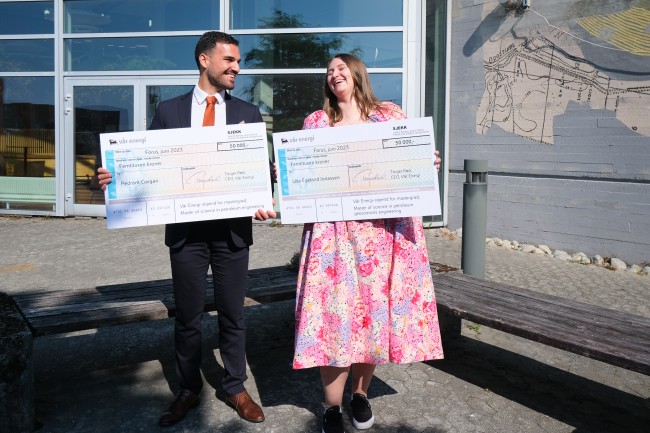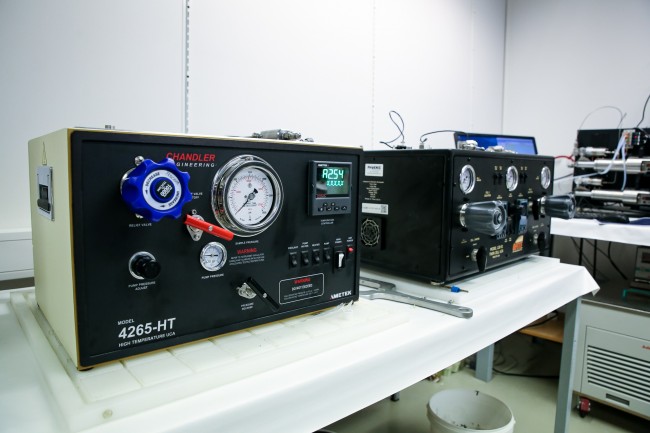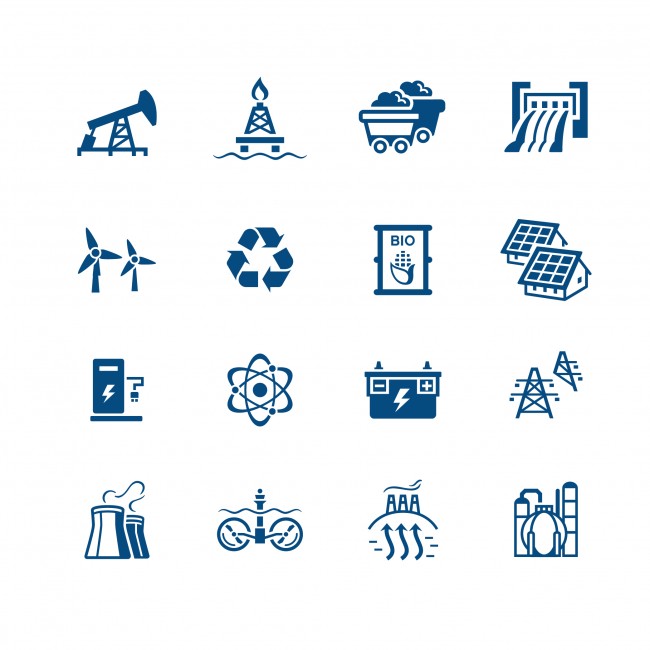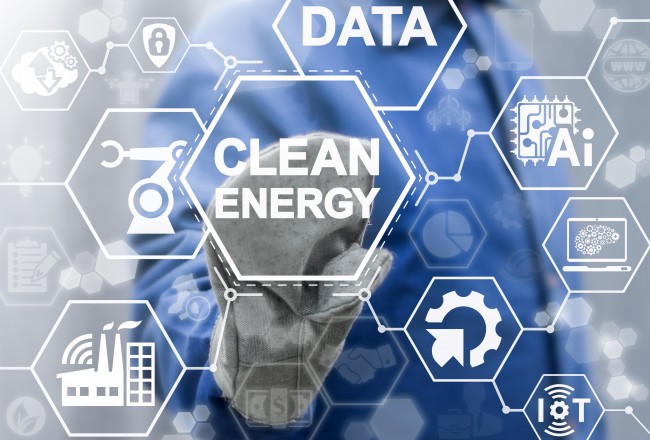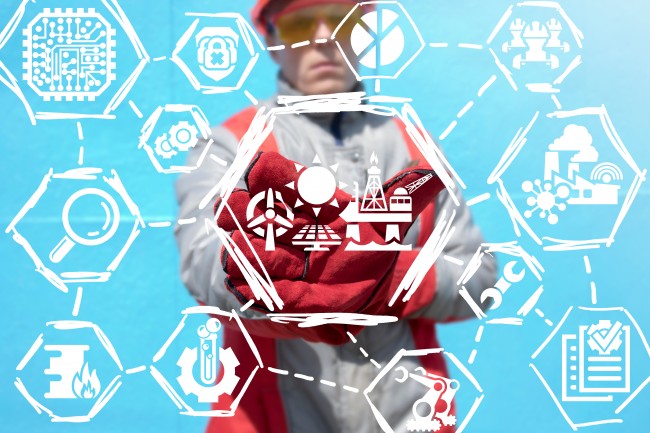Energy transition towards clean, sustainable, and affordable energy solutions is on top of the global, national, and local agenda.
3
6
4
Deep decarbonization of energy systems is a global challenge we face today, where use of innovative energy conversion technologies will play a central role.
AI enabled Condition Monitoring and Fault Diagnostics for Distributed Energy Systems
There are several researchers in the energy group, lead by Professor Assadi, who are studying the use of data-driven methods, specifically Artificial Intelligence techniques, to improve the predictive capability and condition monitoring of small-scale Distributed Generation (DG) systems. Micro Gas Turbine (MGT) have been specifically targeted, due to their fuel flexibility and low emissions. However, AI-based data driven approaches has been applied to geothermal energy installations, heat pumps, offshore installations and more. Combining multiple methods in a hybrid structure have been investigated at system level, showing great potential to offset the limitations of using a single technique and thus improve accuracy of the prognoses, predictions, and more.
BHEsINNO – Innovation in Underground Thermal Energy Storages with Borehole Heat Exchangers
The project involves development of innovative setups of Borehole Heat Exchangers (BHEs). Structures tested as a part of the project will aim to maximize the energy effect (which is defined as a unitary power obtained in BHE, in Watt per meter). The innovative approaches cover new heat exchanger designs and materials, as well as tools for design and analysis of the system. Coaxial constructions will be analyzed and compared to the traditional, U-tube based ones. The coaxial construction enables heat extraction from deeper holes than the current standards for shallow geothermal. Research methodology is based on mathematical modelling of individual BHEs and fields consisting of multiple BHEs, taking into account their interference. Modelling will be verified by data gathered from in situ tests on BHEs.
Project ends April 2024.
Agastor – Advanced Gas and Carbon Dioxide Storage in Aquifer
Geological Carbon Storage (CGS) as an element of the CCUS/CCS processes is considered to be the most viable option for the storage of the large CO2 quantities needed to reduce the CO2 concentration is the atmosphere and to combat the climate change effectively. Storage of natural gas and partially decarbonized gas (with addition of H2) will play a vital role in the stability of energy supply in the EU. The innovative, guiding concept of the AGaStor project is based on the synergy between natural gas storage and CO2 storage process. The main objective of the project is to facilitate the implementation of advanced Underground Gas Storage (UGS) using dynamic support of Carbon Dioxide Cushion (CDC) in saline aquifers. The project will produce practical guidelines and solutions for characterization of possible storage sites of UNGS with CDC (3D architecture of the storage complex, trapping mechanisms, reactive flow, CO2/NG mixing process, risk assessment and sensitivity analysis) in selected regions of future deployment, improved monitoring and potential mitigation of CO2 leakage. Combining CO2 storage with UGS can bring economic and technological advantages to the industry and allow it to reduce the amount of anthropogenic emissions of CO2. This new CCUS element may be an element of pro-climate action. A key issue of the AGaStor project will be knowledge exchange and enhanced cooperation between the Polish & Norwegian partners to determine the best technologies & application in the energy systems of partner countries.
Smart solutions for energy systems of the future
This project investigates tools and methods founded on artificial intelligence (AI) for monitoring, analysis and optimum design and operation of energy systems, mainly in buildings, considering both thermal and electrical energy and their coupling. Hence, the main objectives are:
- studying advanced tools for real-time monitoring of energy systems;
- analyses models development to predict the production, demand, and states of energy systems;
- to evaluate how various energy resources, load profiles, and operating strategies affect the performance of multi-vector energy systems;
The work aims to address the following research questions:
- In a multi-vector energy system consisting of heating, cooling, and power production technologies, how can the optimal operation of these technologies be determined?
- What are the effects of an AI-based energy management system for both demand and supply side control on different indicators such as district energy consumption, costs, and GHG emissions?
- How can an AI-based design and operation toolkit be developed to efficiently influence heating and cooling production of a heat pump system?
This Ph.D.-project is funded by the Research Council of Norway and Norconsult AS under the Industrial Ph.D. scheme, which is based on a company collaborating with a university on a doctoral project. The two regional energy projects Triangulum Central Energy Heat Pump Plant and Elnett21 – an emission-free and electric transportation system serve as the main reference cases for the PhD work.
The Energy Central UiS
The Energy Central uses geothermal energy to produce and distribute heating and cooling to the entire Ullandhaug campus.
Yara's Birkeland Prize 2024 to Song Lu
Yara’s Birkeland Prize for 2024 in chemistry was given to doctor Song Lu for his thesis titled “Transition-metal-mediate...
Energy students awarded for their efforts
Repsol awarded a total of four prizes and NOK 120,000 to master students at University of Stavanger.
He is Energy Professional of the Year
Reidar Bratvold won the prize as Energy Professional of the Year at the SPE gala.
Highlights from the first UiS Petro-Games
In a riveting showcase of industry knowledge and teamwork, the inaugural UiS Petro-Games competition proved to be a reso...
Data-driven mathematical modelling
Mathematical models enable a scientific understanding of natural phenomena around us, and the study and optimization of ...
Industry awards to energy students
Repsol and Vår Energi awarded a total of nine prizes and NOK 350,000 to bachelor and master students at UiS.
Won prize for best PhD project
Huong Huynh finished her PhD project at University of Stavanger October 2021. Now her PhD thesis has been selected as Be...
ACT3 – CEMENTEGRITY
The CEMENTEGRITY project seeks to develop and test better materials for sealing wellbores exposed to CO2 stored in under...
SWIPA Group
This research group works on topics related to geopolymers, subsurface well integrity, plugging and abandonment.
Top students win industry awards
Repsol, IKM Acona and Vår Energi awarded a total of nine prizes and NOK 275,000 to bachelor and master students at UiS. ...
Test facilities – Energy Systems Engineering
Distributed energy conversion technologies, using fuel flexible solutions, energy storage and smart technologies are ess...
Energy Systems Engineering – projects
Running research projects in the Energy Systems Engineering group.
Modeling, Simulation, Optimization, Management and Techno-economy
Energy transition towards clean, sustainable, and affordable energy solutions is on top of the global, national, and loc...
Energy Systems Engineering – collaboration
Our work connects researchers, educators and students at UiS with partners in industry, business and public sector with ...
Energy Systems Engineering – education
In this page you find the courses taught at University of Stavanger related to energy technologies and system integratio...
Applied AI for Energy Systems Engineering
We use state-of-the-art tools like advanced physical models, artificial neural networks, and integrated design, control ...
Energy Systems Engineering – research
The group focuses on developing innovative techno-economically sustainable solutions and has a broad network of academic...
Energy Systems Engineering
Energy transition towards clean, sustainable, and affordable energy solutions is on top of the global, national, and loc...






